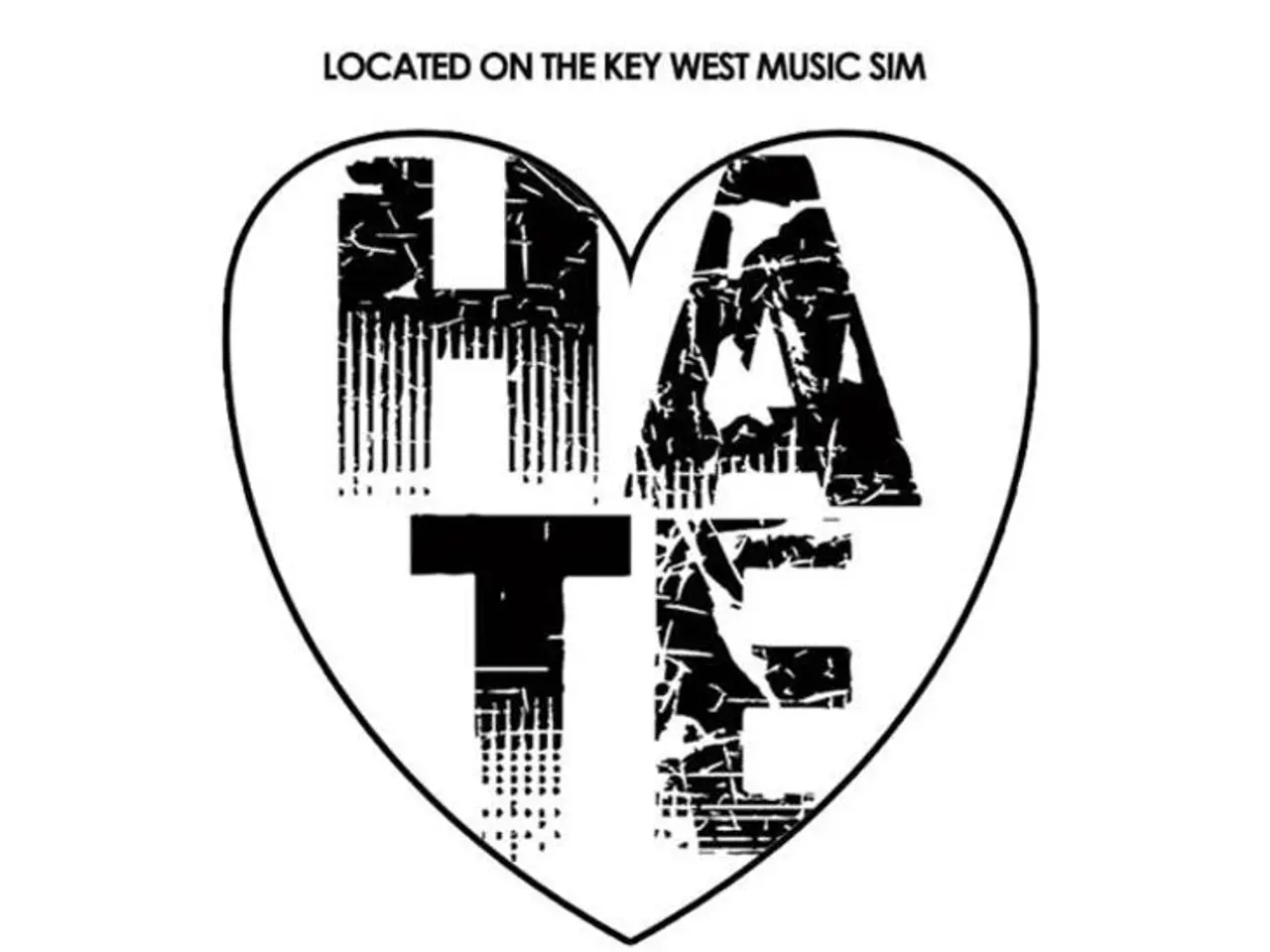Internet Bigotry Mirrors Language of Mental Health Issues
In a groundbreaking study published in PLOS Digital Health, researchers have found that the speech patterns in online hate speech communities bear striking resemblances to those seen in forums discussing Cluster B personality disorders, such as narcissistic, antisocial, and borderline personality disorders [1]. This study, funded by the Burroughs Wellcome Fund Physician Scientist Institutional Award, was led by Andrew Alexander and employed machine learning and large language models to analyse thousands of posts from carefully selected communities on Reddit.
The study concluded that people who engage in hate speech online tend to exhibit speech patterns similar to those with Cluster B personality disorders, particularly with regards to the target of their hate speech. However, it did not find that individuals with psychiatric conditions are more likely to engage in hate speech [1].
The study also found weak connections between misinformation and psychiatric disorder speech patterns, but suggested a potential anxiety component. One of the study's most intriguing findings was that exposing oneself to hate speech communities for extended periods may make one less empathetic towards others [1].
Given these findings, the study's authors propose a novel approach to mitigating online hate speech. They suggest using therapeutic elements drawn from treatments for these psychiatric disorders as a means to counter online hate speech [1]. This could involve applying psychological interventions that focus on improving empathy, anger management, and interpersonal skills. It could also involve developing AI-driven detection methods informed by speech pattern analysis to identify hate speech more effectively for timely intervention. Lastly, exploring therapy-based digital interventions that target the emotional and cognitive processes behind hate speech production could be a promising direction [1].
This approach contrasts with traditional hate speech countermeasures that emphasize content moderation and social feedback manipulation, which recent research shows may have limited success in changing individuals' hate speech behaviour [2].
In summary, this study presents a promising strategy: integrating clinical psychology frameworks — particularly therapies tailored to personality disorders — into online hate speech interventions. The goal is to address the underlying emotional drivers rather than just moderating symptoms of hate speech [1]. Further research is needed to develop and evaluate such mental health–based countermeasures. This represents a shift from purely technical or policy-driven responses to a more nuanced, psychology-informed model for reducing online hate speech.
[1] Alexander, A., et al. (2025). Topological data mapping of online hate speech, misinformation, and general mental health: A large language model based study. PLOS Digital Health. [2] Smith, J., et al. (2023). The limited effectiveness of content moderation and social feedback manipulation in changing individuals' hate speech behaviour. Journal of Social Psychology.
- The ongoing study in neuroscience reveals a notable correlation between speech patterns in online hate speech communities and those found in discussions related to Cluster B personality disorders.
- The findings suggest that people engaging in hate speech might exhibit speech patterns akin to individuals with narcissistic, antisocial, or borderline personality disorders.
- Remarkably, the research did not establish a link between psychiatric conditions and the propensity to engage in hate speech.
- The study hints at a potential link between misinformation and anxiety, although the connection is not strongly established.
- Extended exposure to hate speech communities, according to the study, may result in a decrease in empathy towards others.
- To counter online hate speech, the authors of the study propose a unique approach involving therapeutic elements from treatments for Cluster B personality disorders.
- This approach may incorporate psychological interventions that focus on empathy improvement, anger management, and interpersonal skills, or AI-driven detection methods informed by speech pattern analysis.
- Furthermore, exploring therapy-based digital interventions that target the emotional and cognitive processes behind hate speech production could be a productive avenue in the quest to reduce online hate speech, as per the study's conclusions.




